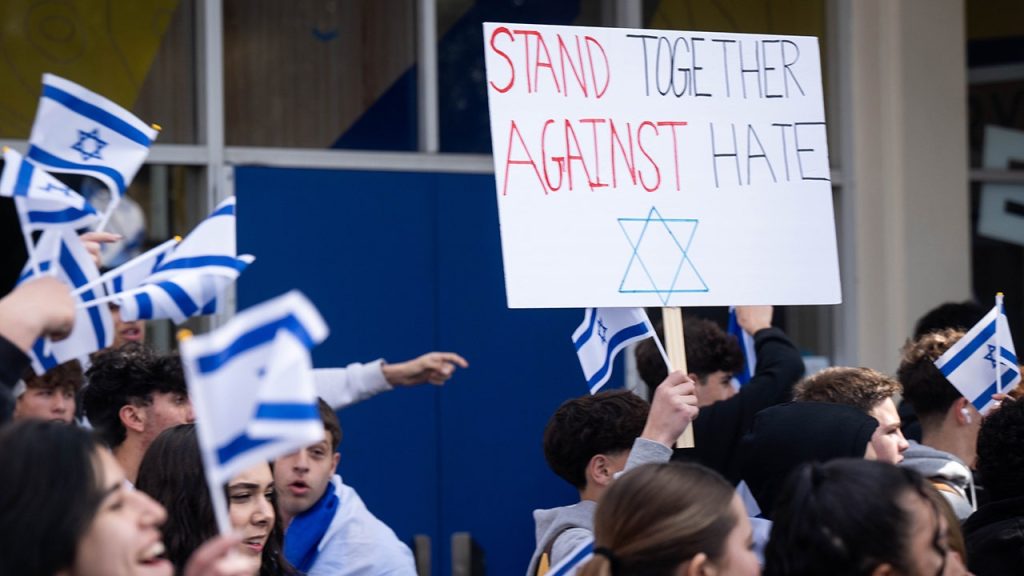The aftermath of the Hamas terrorist attack on Israel in October 2023 unleashed a torrent of antisemitism globally, impacting Jewish communities in unprecedented ways. The surge in hatred manifested in threats, intimidation, and physical violence directed at schools, community centers, and synagogues, shattering the sense of security Jewish people had previously enjoyed. This shift was abrupt and jarring, leaving many feeling alienated and betrayed by those they had considered allies in the fight for social justice. The sudden surge in antisemitism transformed it from a peripheral concern to an omnipresent threat, becoming an unsettling part of daily life. The perception of antisemitism as a “Jewish problem” rather than a societal stain further compounded the sense of isolation and vulnerability felt by Jewish communities.
The Anti-Defamation League documented a staggering increase in antisemitic incidents following the Hamas attack, recording over 10,000 incidents in the subsequent year, a threefold increase from the previous year. These incidents ranged from harassment to physical assaults and vandalism, with a significant portion occurring at anti-Israel rallies and Jewish institutions. The proliferation of anti-Israel sentiment in certain political circles and within the United Nations contributed to the escalation of domestic antisemitism. The passage of a resolution by the Chicago City Council calling for a ceasefire in Gaza without demanding Hamas disarmament drew sharp criticism from Jewish leaders. Furthermore, the U.N. special rapporteur on the occupied Palestinian territories, Francesca Albanese, sparked outrage by making inflammatory statements during her U.S. campus tour, questioning Israel’s right to exist and justifying the Hamas attack.
University campuses became hotbeds of anti-Israel activism, with the emergence of encampments that often excluded Jewish students from their own spaces. Anti-Israel protests frequently featured the display of Hamas flags, while individuals who expressed pro-Israel sentiments faced targeted harassment and vandalism. The symbolic replacement of the American flag with the Palestinian flag in Washington, D.C., and the defacement of a Christopher Columbus statue with pro-Hamas graffiti underscored the emboldened nature of anti-Israel extremism. The threat of violence also loomed large, with a thwarted ISIS-inspired attack on the Jewish community in Canada and the U.S., and a shooting targeting a Jewish worshipper in Chicago by a Mauritanian national highlighting the potential for deadly consequences.
The failure of political leaders, particularly in large cities, to effectively combat antisemitism has been identified as a contributing factor to its resurgence. Critics argue that the downplaying of Jewish identity and the reluctance to prosecute attacks against Jews as hate crimes, especially when the perpetrators belong to other minority groups, reflects a political calculus that prioritizes avoiding accusations of hypocrisy over upholding the civil rights of Jewish Americans. This inaction has emboldened antisemitic actors and created a climate of impunity. The confluence of normalized hatred on social media, escalating anti-Israel rhetoric from national leaders, and the lack of accountability for extremists targeting Jewish communities has created a “perfect storm” of intolerance.
The surge in antisemitism has not been confined to the United States. Europe has witnessed a dramatic increase in antisemitic incidents, with some countries experiencing increases as high as 800%. Jewish individuals in Europe have resorted to concealing their religious identity and even changing their names to avoid becoming targets of harassment and violence. The escalating hostility has prompted a significant increase in applications for immigration to Israel from European Jewish communities. Ireland, despite its small Jewish population, has also seen a rise in antisemitism and Jewish self-censorship, leading Israel to close its embassy in the country.
The United Kingdom has experienced a record number of antisemitic incidents, including a substantial increase in attacks on Jewish property. The pro-Hamas atmosphere in London has drawn criticism, with some labeling it the “most antisemitic city” in the world. Attacks against Jewish individuals, including the stoning of a school bus and the assault of Jewish teenagers, highlight the alarming reality of antisemitism in the UK. Elsewhere, a 12-year-old Jewish girl in France was tragically raped due to her religion, and a Chabad rabbi was found dead in the United Arab Emirates. Synagogues worldwide have been targeted in arson attacks, and Jewish schools have faced shootings, underscoring the global reach of antisemitic violence. Travel advisories issued for countries like Australia and the Netherlands reflect the widespread nature of the threat. The infiltration of antisemitism into elite universities, workplaces, the medical community, and the entertainment industry further compounds the challenges facing Jewish communities. Despite these daunting challenges, there remains hope for positive change through the resilience of the Jewish community and the potential for new policies implemented by incoming administrations to effectively combat antisemitism.

